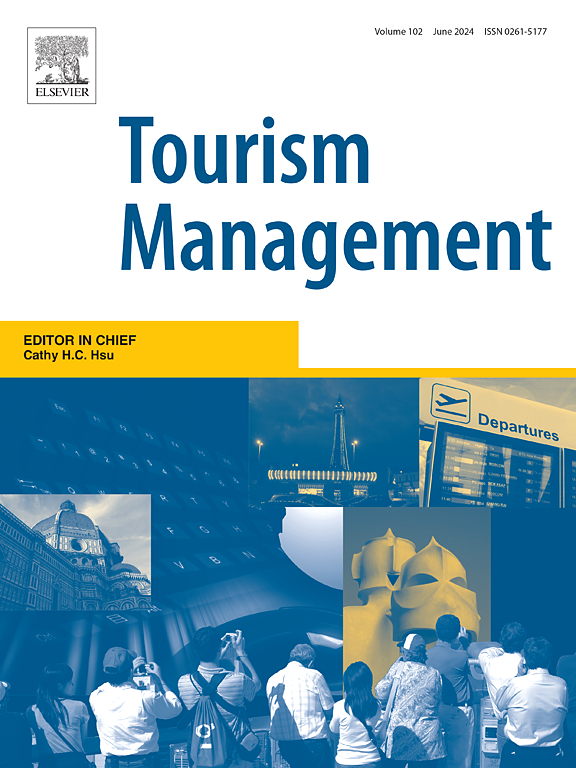Unlocking global horizons through outbound tourism: An institutional logics approach to driving outward FDI by tourism firms from emerging countries
IF 10.9
1区 管理学
Q1 ENVIRONMENTAL STUDIES
引用次数: 0
Abstract
Grounded in institutional logics theory, this study investigates how outbound tourism drives outward foreign direct investment (OFDI) by emerging-country tourism firms (ETFs). We argue that the rise of outbound tourism in emerging countries fosters an "outward-looking social logic" within the broader population, which can widely increase ETFs’ cognitive preference for investing abroad. Given the complexity of institutional logics, we further posit that the positive relationship between outbound tourism and ETFs’ OFDI is contingent upon three key moderators associated with distinct logics—CEO foreign experience (imprinted individual-level outward-looking logic), state ownership (linked to organizational-level political logic), and home-market attractiveness (tied with industry-level domestic-market logic)—which can either amplify or attenuate the influence of the outward-looking social logic fostered by outbound tourism. Employing a longitudinal dataset of 794 firm-year observations from 64 publicly listed Chinese tourism firms spanning 2001–2019, our findings robustly support a positive association between outbound tourism and ETFs’ OFDI. This effect is amplified in firms led by returnee CEOs but attenuated in state-owned enterprises and those operating in home industries with high attractiveness. Our study contributes to the internationalization literature by advancing our understanding of the antecedents of OFDI by (tourism) service firms from emerging countries. It also offers valuable insights for practitioners in these countries navigating global expansion and for policymakers in host countries seeking to attract overseas investors from emerging economies.
求助全文
约1分钟内获得全文
求助全文
来源期刊

Tourism Management
Multiple-
CiteScore
24.10
自引率
7.90%
发文量
190
审稿时长
45 days
期刊介绍:
Tourism Management, the preeminent scholarly journal, concentrates on the comprehensive management aspects, encompassing planning and policy, within the realm of travel and tourism. Adopting an interdisciplinary perspective, the journal delves into international, national, and regional tourism, addressing various management challenges. Its content mirrors this integrative approach, featuring primary research articles, progress in tourism research, case studies, research notes, discussions on current issues, and book reviews. Emphasizing scholarly rigor, all published papers are expected to contribute to theoretical and/or methodological advancements while offering specific insights relevant to tourism management and policy.
 求助内容:
求助内容: 应助结果提醒方式:
应助结果提醒方式:


